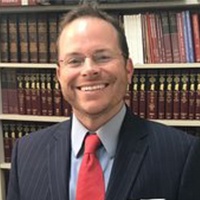 Philipp Juvenile Law Lawyers, Mississippi
Philipp Juvenile Law Lawyers, Mississippi
Sponsored Law Firm
-
 x
x

Click For More Info:
-
Smith, Murphy & Dobbs, LLC
1109 Van Buren Ave Oxford, MS 38655» view mapAccident & Injury and Criminal Defense Smart, Efficient, Precise
Fair legal work for fair compensation. We are straight-forward in our communications with clients and return all emails and phone calls within twenty-four (24) hours.
800-894-6061
Not enough matches for Philipp Juvenile Law lawyer.
Below are all Philipp Criminal lawyers.
Sponsored Lawyers
1-2 of 2 matches
Accident & Injury, Divorce & Family Law, Estate, Criminal, Real Estate
A native of Cleveland , John C. Cox has been practicing law in his hometown since 1999. John began work as an associate for his late father and cousin at that time, and became a Member in 2007 before becoming the firm’sManaging Member in 2011. In his practice, John has successfully served individuals in the areas of family law, personal injury, criminal defense, real estate, general litigation, sports law, and wills and estates. During this time, John has been fortunate enough to represent both large corporations and individuals, and is proud of the referrals of clients that he has received from both attorneys and clients alike. He is a member of the Mississippi Bar Association, and is licensed to practice before all state courts in Mississippi, all federal courts in Mississippi, the Fifth Circuit Court of Appeals, and the United States Supreme Court. John has served on the Board of Directors for the North Mississippi Rural Legal Services and on the Mississippi Bar’s Centennial Committee. He has been a member of both the American Bar Association and the Sports Lawyers Association, and has been an instructor in Commercial Law at the DSU School of Business for the last nine years. He has been honored by SuperLawyers magazine as a “Rising Star” in the Mid-South for 2013 and 2014, a distinction limited to a maximum of 2.5% of all attorneys in the Mid-South.. In addition, he was selected to the Top 10 under 40 in 2014 by the National Academy of Family Law Attorneys, a 2017 selection as a Top 10 attorney in Mississippi by the National Academy of Family Law Attorneys, and is a Master of the Bench of the William C. Keady chapter of the American Inns of Court. His firm is listed in Bar Registry of Preeminent Law Firms, one of only four firms in Cleveland to hold that distinction. In addition to his civil practice, John currently serves as Municipal Court Judge Pro Tempore in Cleveland, a position he has held since 2003. He previously served as Municipal Court Public Defender for the City of Cleveland. He also serves on the Planning Commission for the City of Cleveland.
(more)


 Joseph Murphy Oxford, MS
Joseph Murphy Oxford, MS Practice AreasExpertise
Practice AreasExpertise

